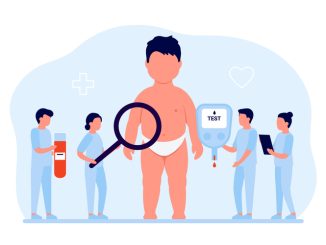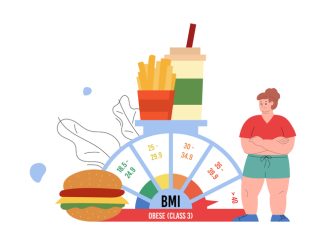
Zaytun Ratansi, health coach at non-profit Living Well, has 13 years’ experience helping patients to transform their lifestyles in the name of better health. In this article she explores the importance of supporting people in their weight loss journeys
Taking Control
A new report by the British Psychological Society has called for changes in language to reduce stigma and a need for health professionals to be trained to talk about weight loss in a more supportive way.
This is welcome news for health practitioners and coaches like myself, who have called on greater access to the right support for those living with chronic conditions like obesity and Type 2 diabetes.
The report highlights trauma and stress as one of the leading reasons people are developing obesity, saying ‘people who live in deprived areas often experience high levels of stress, including major life challenges and trauma, often their neighbourhoods offer few opportunities and incentives for physical activity and options for accessing affordable healthy food are limited.’
This combination of stress, deprivation and trauma needs to be taken into account when developing healthcare solutions for these conditions.
The power of educational support
To help combat this, greater efforts need to be placed on educating the public around making healthier choices.
Many of the deprived patients I treat every day have a lack of knowledge around healthy eating and lifestyle. Patients are unable to make the everyday choices to keep their weight off.
That’s why, in my coaching, I highlight five healthy key lifestyle messages in areas of diet, exercise and positive mental health. I make use of visualisation techniques, aids and demonstrations to show participants about the food choices they make every day. My sessions often see family members and partners attend to support each other. This has huge transformational power for communities with years of generational lifestyle problems reversed.
Tools to treat chronic conditions
A national rollout of support is in progress, which will see a combination of group support and widening access of digital tools to help treat those living with obesity and Type 2 diabetes.
This couldn’t come soon enough. Liva Healthcare offers one such programme. Used by NHS England, the digital coaching platform enables patients to set goals and track progress via an app. Crucially, there’s always a human touch, with the patient holding regular video meetings with the same personal health coach.
Another programme is run by Living Well Taking Control, which delivers the NHS Diabetes Prevention Programme across the UK.
The programme sees participants take part in eight group sessions and five 1-1 check-ups, with each week focusing on a new key theme. From a sample of 2,107 participants reaching the twelve-month stage, 1,575 (75%) achieved a weight loss reduction. The participants achieved an average weight loss of 4.24Kg during this period.
Driving behavioural change is what’s unique about these programmes to encourage healthier lifestyles and positive mental health.
Ultimately, there is only one solution to obesity – a lifestyle change. It’s a major mental challenge for patients. However, with the right help and support, there is a new optimism that we can get there. With digital tools and programmes, we are on the cusp of even more significant advances. We must



Be the first to comment